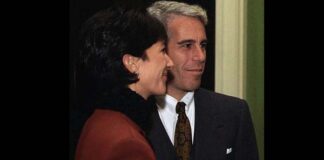Review: Quarterly Essay “Quarry Vision: coal, climate change and the end of the resource boom”
By Guy Pearse, Black Inc, $16.95
AS DEBATE hots up over the Rudd government’s CPRS, the latest Quarterly Essay is a timely contribution providing ammunition for that debate. Pearse is not against emission trading per se. But his essay reveals why the present CPRS is a recipe for business as usual for the carbon polluters.
Pearse was a member of the Liberal Party and adviser to Howard’s environment minister Robert Hill. He is now a fervent advocate for action to stop global warming.
Perhaps because he was once an insider, Pearse’s revelations of the “carbon lobby”—the interacting group of business leaders, coal industry consultants and climate deniers that surround the government—is a particularly sharp reminder of the class interests that drive the carbon polluters.
Not surprisingly, given his background, there are times Pearse lumps union leaders in with the bosses’ “carbon lobby”. This is an argument for another day—although it is a warning for those union leaders who do sound like apologists for carbon polluters.
Pearse first debunks the idea that coal and other emissions intensive industries are essential elements of the Australian economy. Bunnings employs one and half times as many people as the entire aluminum industry. Altogether, at the height of the boom, the mining industry accounted for only 1.3 per cent of employment. Pearse probably underestimates the multiplier effect of mining jobs but the point is well made.
Even as far as national income is concerned, the mining industry’s claims that they provide $18 billion in state and federal tax revenue are significant but not overwhelming. And this does not count the subsidies handed out to the mining companies—such as cheap electricity contracts and the diesel fuel rebate.
Global operations
One of the most intriguing parts of the essay reveals not just that BHP-Billiton, Rio Tinto, Xstrata and Anglo Coal are foreign owned, but that their Australian operations are part of a jig saw of global production. While they push for “clean coal” investment and free emission permits in Australia, the parent companies are making serious efforts to avoid exposure to carbon pricing of any kind, by investing in clean energy producing countries.
Companies threatening to flee Australia or claiming that carbon taxes will force them to close are the same companies investing in clean energy projects elsewhere in the world.
Iceland has become a player in the aluminium industry because of its cheap hydro power. One of the reasons China is building the Three Gorges Dam is to produce renewable clean energy to attract the industries that are otherwise regarded as carbon polluters.
The executive vice president of Alcoa recently told a European audience, “We are drilling toward the future…the world needs to tap into almost limitless, clean, natural energy and to substantially reduce greenhouse emissions.” As Pearse says, “Our aluminium industry wears green shorts when playing away, black shorts at home.”
Pearse also comprehensively puts the boot into climate adviser to the Rudd government, Ross Garnaut and the “carbon colonisation” he advocated.
“Having recommended that the Australian government set a very low target if international negotiations faltered as expected, Garnaut endorsed almost every loophole required for Australia to export its emission obligations and for our worst polluting sectors to offload theirs.”
Pearse also dismisses “clean coal” as being any possible solution.
So far, so good. The one element to take issue with is Pearse’s proposition that Australia should shut down coal exports.
This is an issue that has been hotly debated in the climate movement—some arguing that coal exports are Australia’s biggest contribution to global climate change and therefore should be the main target of a climate campaign. Pearse has a strong argument that a coal-free economy is quite possible.
But, politically, the push against exports is misdirected. It would leave Australia’s domestic carbon polluters untouched and suggest that the main problem is the coal consumption of China and India rather than the carbon pollution of the developed world. Our real enemy in the coal war is at home.
The best assistance the Australian climate movement can make to the global fight is to stop Rudd’s CPRS and fight for massive, immediate investment in renewable power generation in Australia.
Such a political example really would be worth exporting.
By Ian Rintoul





